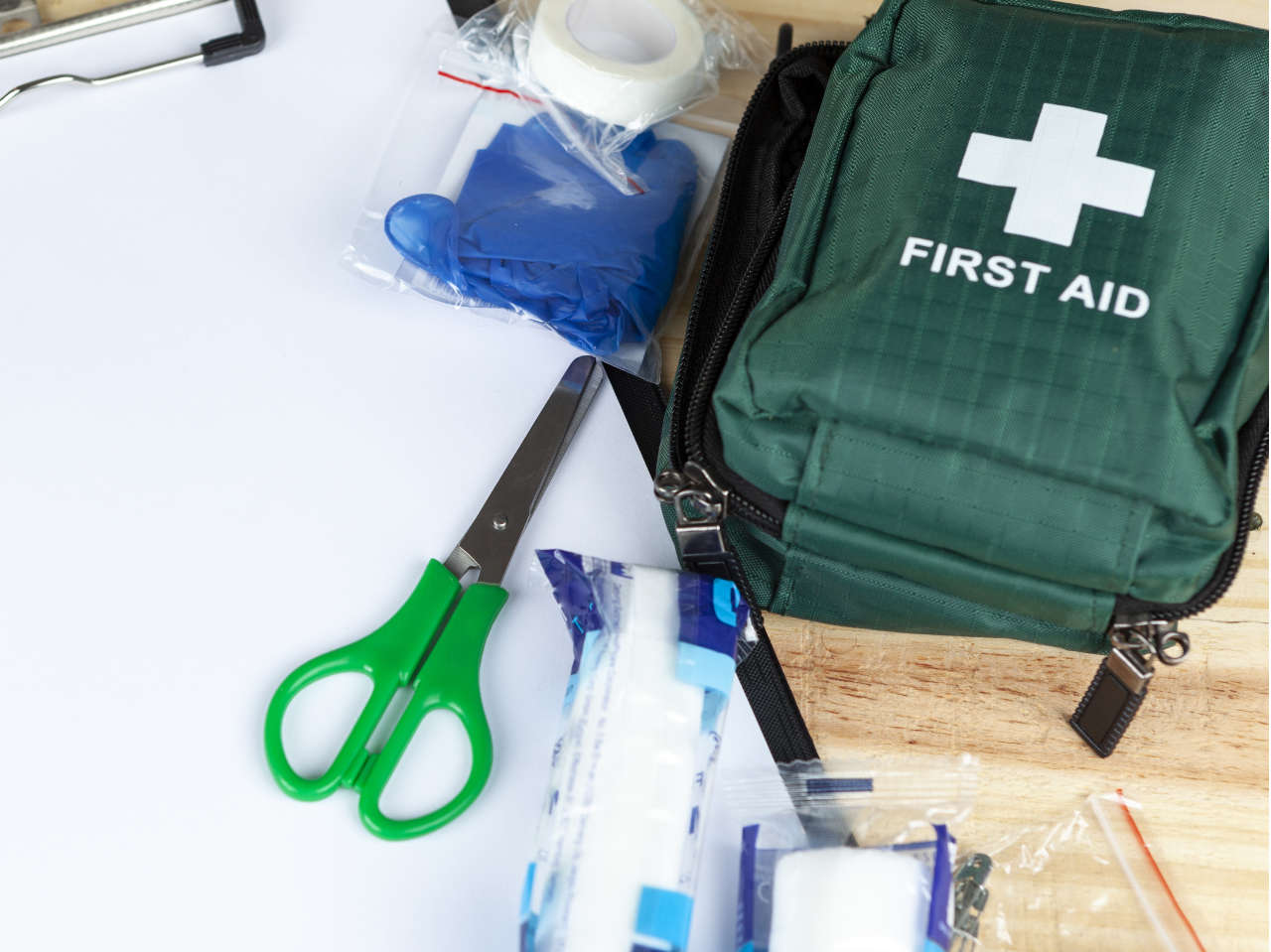
When an accident occurs, or someone is taken ill in a workplace, the role of an organisation’s Appointed Person becomes important. This guide explains what an Appointed Person is, the main responsibilities of an Appointed Person, how to choose one and what support employers should provide.
There were 581,000 non-fatal injuries sustained by workers in British workplaces in 2018/19, a figure which highlights the need for all organisations to have procedures in place for responding to accidents quickly. A key part of that process is the role of an Appointed Person. It is their job to take charge when a person becomes ill or is injured while working.
Training can help an Appointed Person fulfil their duties. Our Office Safety training course helps ensure the employee identify workplace hazards and know how to report incidents and potential safety issues.
Difference between an Appointed Person and a first aider
All organisations are legally required to appoint someone to take charge of first-aid arrangements in the workplace. A first aid risk assessment will highlight whether you need an Appointed Person or First Aider.
It can be easy to confuse the roles, so what are the main responsibilities of an Appointed Person and a First Aider?
The main difference is that an Appointed Person does not need to be trained in first aid. Their role involves reporting incidents and looking after first aid equipment, but not carrying out first aid to assist an injured or ill person at work. A First Aider, however, needs to be trained in first aid.
In higher-risk organisations, a trained First Aider can fulfil the role of an Appointed Person, but an Appointed Person cannot be a First Aider unless they have been formally trained.
Does my organisation need an Appointed Person?
Employers are legally required to provide adequate first aid equipment and facilities so employees can get immediate help if they are injured or fall ill at work. One of the minimum requirements is the need for a named person who takes charge of first-aid arrangements including looking after equipment and calling the emergency services if required.
A first aid assessment may determine that fully trained First Aiders are necessary. If this is the case, a separate Appointed Person does not need to be in place.
What are the main responsibilities of an Appointed Person?
The Appointed Person plays an important role in workplace and office safety. Their main responsibilities include:
1. Looking after first aid equipment
An Appointed Person is required to look after first aid equipment. They should know where it is stored so it can be quickly accessed when required. They should regularly check first aid equipment and replace used and out-of-date items such as plasters and bandages.
2. Taking charge when an employee is injured or taken ill
When an injury or illness occurs, the Appointed Person should take charge if a trained First Aider is not present. They should not provide first aid if they are not trained, but their role can include finding a trained person to help and retrieving the first aid equipment.
3. Calling the emergency services
When an incident occurs, it is important that everyone knows that the emergency services will be called if required. Although anyone can call an ambulance or another emergency service, having it as a set responsibility of the Appointed Person ensures that there is no confusion about who should do it. A trained First Aider may be busy helping the injured or ill person, so with the Appointed Person making the call, valuable time for treating the person isn’t lost.
4. Keeping records
Maintaining records of injuries and illnesses is important for office safety and an Appointed Person can take on this role. This includes filling out electronic accident forms, or an accident book.
Under the Reporting of Injuries, Diseases and Dangerous Occurrences Regulations (RIDDOR), employers must report certain serious workplace accidents, occupational diseases and dangerous occurrences to the Health and Safety Executive (or HSE NI in Northern Ireland). The Appointed Person can highlight to the employer if an incident might need to be reported in this way.
5. Providing emergency cover
In the absence of a First Aider, an Appointed Person can provide emergency cover. While they cannot carry out first aid without sufficient training, they can take charge of the incident and contact the emergency services.
Emergency cover does not include if a First Aider is off work due to annual leave. If a first aid assessment shows that trained First Aiders are necessary, employers are required to make sure there are enough First Aiders in place for all situations.
How to choose an Appointed Person
Not everyone in an organisation will be suited to the role of an Appointed Person, so employers should consider the skills and personality traits required for the main responsibilities of the job.
The Appointed Person you select should have a willingness to take on the role and be ready to take pride in it. They will have to deal with emergencies, so the ability to remain calm under pressure is important. They also need to be reliable and easily reachable should an incident occur.
Training and support for an Appointed Person
Appointed Persons are not legally required to have any approved training, but it’s recommended that employers provide office safety training. Well run courses will give the employee an understanding of good health and safety practices in the workplace, which will help them perform their role.
The importance of an Appointed Person
The role of an Appointed Person isn’t just a legal requirement; it could also save someone’s life.
Employers of all sizes must understand what an Appointed Person is and ensure they have one in place so that if an incident or accident occurs, they are well prepared.
Our Office Safety training course helps ensure your organisation is compliant with Health and Safety at Work Regulations by training employees in health, safety and the workplace environment.

Adam Clarke
Managing Director (Consulting)
